|
Image Reference: http://pixabay.com/en/wedding-love-happy-couple-bride-443600/ by Camela Thompson
There are romance novels I've loved because of the depth of the characters. There are fictional relationships I've rooted for despite them going against what I believe a good relationship should look like. Then there are the relationships that make me want to pitch the book across a room. A very popular young adult series depicted a predatory vampire watching a young women in her bedroom while she slept. When he left her "for her own safety" she decided she would rather die than live without him. This was a very unhealthy example of a codependent relationship. Young women used it as a reference by which to judge their own relationships. The Internet came alive with teens who were dumping their boyfriends, despondent that they may never find the man willing to sacrifice himself for them. Is it the author's fault that young women used her fictional characters' relationship as a basis for their own? No. I doubt she could have foreseen the impact those characters would have on many young women. Maybe she even thought that she was portraying the perfect relationship -- illustrating the apex of loyalty and devotion. There are many books I read and wonder, "Is this what love is to the author?" Fifty Shades of Grey has been analyzed and torn apart. I haven't read it. I probably won't. But I do question whether it was the author's responsibility to portray a healthy relationship, let alone represent the BDSM lifestyle. She did what many of us do. She wrote her story, caught up in the words, not thinking of whether or not it would become a best seller and influence people. There are plenty of books I've read that portray emotionally abusive relationships as the "ideal." Perhaps the only reason the authors don't get reamed for it is because their book hasn't made it to the big screen. Is it possible to demand that an author portray the perfect relationship? Would this get boring? If each of us was asked to sit down and describe the perfect relationship, the write ups wouldn't look the same. What we look for in a partner and the treatment we find desirable or even acceptable is a blend of many, many things. What we witnessed during our childhood, the relationships we had growing into an adult, what we discuss with friends, biology, and what we choose to read and watch can all feed into what we desire. The benchmarks we use for a relationship aren't impartial or scientific. Have you ever had a friend talk about their own relationship and walk away from the conversation viscerally disturbed? If it was easy to see all of the flaws in our own relationship, many of us wouldn't have spent so much time with certain people in our past. As an author I feel an obligation to try to develop strong female characters and portray relationships in a realistic light. This doesn't mean my characters will always make wise choices or the relationships will be ideal. Characters will be manipulated, lied to, and blinded by their own lust. These flaws make the characters more human and the story more believable. That said, I don't shy away from bringing the unhealthy elements to light and calling them out as such. I think the fact that relationships in books have been blogged about and analyzed is a very positive thing. It gave people an opportunity to talk about their own unhealthy relationships and warn others. However, I do wonder why people don't ask why a minority of readers felt it was acceptable to act out what they read in a book. The genre is fiction. Should we be more concerned about people who take the work literally than what was written? Do you think writers have an ethical responsibility to portray healthy relationships in certain genres? Should works of fiction be held to a standard and looked to as an example to live one's life by?
4 Comments
by Camela Thompson I have words! Perhaps it's closer to a trickling stream than a geyser, but words have made it onto pages. Scenes have been crafted. The best part? They weren't bad! At the risk of sounding like a braggart, they were good. The effort and strain were gone. Images and conversations flowed through my mind and onto the screen. It was like the good old days. What opened up the block? I had a week between jobs. Annie and I spent a glorious nine days alternating walking around the neighborhood, running errands, and sitting on the couch. I learned she hates running and would rather be left at home than be coaxed around the neighborhood (it's twice the workout, but she wins - no more runs). She's a master at enforcing break time, and she seems to know when I wasn't being productive anyways. The first two days I did little. The next two were filled with false starts. Finally I relaxed a little and worked on scenes that involved characters in The Hunted series. Perhaps the words flowed because of the break. Maybe it was because of the switch to a new job. The most likely answer: it was a combination of a return to familiar characters, the break, and a need to avert my thoughts from the stress of starting at a new company. After almost nine years, tomorrow marks my first new day at a company. The business knowledge that made daily tasks easy is gone. A great deal of being successful at a job has nothing to do with having all the answers. It is important to know who to go to and what the rules are. I have confidence in my system knowledge, and I'll ask a lot of annoying questions. It will all work out. It's new and nerve wracking, but I have hope that things will go well. I worry that the stress will slow the words. Perhaps it will for a while. Time will tell. I'll miss Annie during the day. I have to hope she'll fall back into our routine. She's the first dog I've had that doesn't get stressed when I leave the house and looks at me impatiently to put her filled Kongs down and go. The girl has her priorities straight. Maybe I can learn from her and worry a little less, take more breaks, and slow down. There's no need to run everywhere.
by Camela Thompson
I was asked what I felt a strong female character should look like. None of the traits I listed were physical. Intelligence and emotional fortitude were the front runners - the willingness to persevere in the face of adversity. The individual who plods forward despite fear is a strong person, and those traits do not differ between the sexes. Strength in women, just as with strength in men, does not equate to perfection. In fact, the more adversity the character faces, whether it be in illness, disability, or environmental challenges, the more opportunity the author has to showcase the character's strength. To be honest, there are times I feel bad for my characters because I like to stack the deck against them and watch what happens. Yes, you may picture me cackling at my laptop as I drop another bomb on the battlefield that is my story line. I have to wonder why there is so much focus on building a believable female character. It's not hard to break from the archetype of ditzy, battered Barbara and her lack of self worth. Make your women people. Give them dreams, strengths, and weaknesses. Just don't let the weaknesses outnumber all else. Give her a brain. Let her be the one to walk along her journey without a man guiding her in the right direction. I look at strong women in the workplace and how people respond to them. Women are expected to temper their opinions. Intuitive and compassionate behavior is favored over strict rationality and assertiveness. If facts are baldly stated, they are met with resistance. Here's a great article on the phenomenon. Do people question how to construct a strong female character because they don't want her to come across as "bitchy"? Perhaps taking male traits - a straight shooter with quick wit and brutish strength - doesn't translate directly. Put those same traits in a female character and suddenly you're looking at someone who's "bossy" and "difficult." I'm afraid I have more questions in this post than answers. What do you think makes a strong female character? Why do you think there has been so much focus on creating believable female characters? What do you feel has been lacking? by Camela Thompson
I know some things now that I didn't know two weeks ago. There are times I will not be able to write. My understanding of the publishing industry was and still is not what it should be. I have a penchant for setting unrealistic goals and becoming despondent when I don't meet them. That last one I knew, but I still have a very difficult time recognizing when I'm reaching too far. The final realization was that I am not taking care of myself like I should, and that needs to change. There are times I turn to words and need to write. I find the practice healing, often letting me process some inner turmoil without having to face it directly. That space has allowed a lot of things come out in my writing and given me the strength to face them later, when I'm ready. I embrace melancholy, wrapping myself up in it like an old blanket. Instead of pushing away sadness into some corner, I wallow in it. My response to a bad mood is to shut the curtains and sit in the darkness with the saddest looking movie in the streaming queue. While staring at the screen, I analyze what is driving my despair and use it in my artwork and writing. It's strange and I know my husband doesn't understand it, but it passes. Recently, I hit a rut that wouldn't smooth out with polishing. It deepened, the grooves becoming more pronounced. Words failed me. I stared at blank pages, or worse, hated whatever garbage spilled forth. My inner critic was so loud I couldn't get a page on the screen before shutting my laptop in disgust. I wanted to print out the pages of my WIP just to watch them burn while dancing around them, naked, with a bottle of tequila (that last bit may have been my writing group friend's direct quote, but I take comfort in the fact that I'm not alone). Everything was garbage and somehow writing had turned into something I loathed. I no longer rushed home to pen the words scrolling through my mind. I only wanted to sit on my couch and watch Supernatural reruns with my dog and ignore the list of obligations growing as I sat idle. I even searched for the most douche inspired Dean moments. “Dog Dean Afternoon” was the salve to my creative wounds. What could possibly inspire such an abysmal spiral, you ask? It wasn't a harsh review. It wasn't someone telling me I couldn't and shouldn't write. It might have been the lack of sales. It was definitely the goals I had missed. It absolutely was the pressure I had shoveled upon myself. My problem was not the cruelty inflicted by another. It sprang forth from my own psyche. As usual. Working full time is tough. Writing full time is also tough. Both working and writing full time is tricky. If enjoyment falls out of one or both, the formula for burn out has been achieved. Expect laboratory level explosions. I had stopped working out and wasn't eating as well as I normally did. I haven't been getting out to see friends. I have been focused on hitting my self-imposed deadlines to achieve a goal that wasn't realistic to begin with. The chances of churning out three novels this year didn't seem ambitious compared to some prolific writers I know. It took me a while to see they were burning out too, and had days they wanted to quit. I thought that getting published was the key to a lifetime of writing from home, churning out novels with a singular focus. Now that I've had time to pull my head out of the sand, I see that many writers have full-time jobs – even the successful writers. If they don't have a full-time job, they work part time, often teaching and holding seminars to support their craft. Some turn to journalism, blogging, or other means of paid gigs. Getting a book in print is not a ticket out of the corporate world. This post seems bleak, but there is a silver lining. I have decided to reevaluate how I spend my time. Instead of pining for an escape from the office, I've accepted a new position I'm excited about. It will be a challenge, and the geek in me is excited to dive into a new system and learn some new tricks. At first, it will be difficult. After almost nine years at the same company, I'm used to knowing the players, the products, and the system without research. It's frightening to leave what I know, but I don't want to “mail it in” anymore. I've printed out my schedule to start running again. I'm going to eat better without obsessing over it. There will be cheat days, but I'm ending my cheat months. I'm going to finish editing Blood, Spirit, and Bone, book two of The Hunted, and then I'm going to take a break. I'm going to write something else, but only when I have the energy. I'm going to slow down. But I'm not going to stop. To quote Love and Libations, “Dreams never die.” I just need to remember that my dreams may not happen overnight, and that's okay. Saving my energy and focusing on self-care will enable me to be healthy enough to enjoy my successes. I'm going to take the time to write what I enjoy, and find strength in my work, not dread. by Camela Thompson
There have been few times in my life when I find myself at a loss for words. I suppose that's not true. My luck is strange and I have witnessed many spectacular things that have left me with my mouth hanging open, soundless. Coworkers joke that venturing with me to lunch is a gamble. The day the woman sitting next to me agreed to go to the store and witnessed a homeless man flinging fecal matter from side to side, sprinkling all of aisle five, I was banned from lunch outings. The ban was lifted when strange things continued to happen without my presence. It turns out that downtown Seattle has its risks. Happily, this bout of vocabulary fatigue is just that -- fatigue. This last week has been busy. I am pleased that Blood, Spirit, and Bone - book two of The Hunted - has passed its first round of edits. The manuscript has been sent back to my editor. We continue to march towards a publication date that will be announced shortly (hint: it's soon!). Working full time and writing leaves little in the way of free time. Deadlines stress me out, and I have signed up for several side projects. I find myself staring a blank screen hoping for inspiration. Praying for a topic. Wishing for words. Is it really writer's block if you haven't even started? Maybe it's time to set aside one or two nights. I wouldn't mind watching a movie or staring at the television for a few hours. Annie would welcome the break. She has taken to rushing to sit on my lap so I can't ignore her in favor of typing. What do you do to get over writer's block? |
Camela ThompsonFreelance writer and Dark urban fantasy author featuring vampires with bite. My BooksCategories
All
Archives
July 2020
|

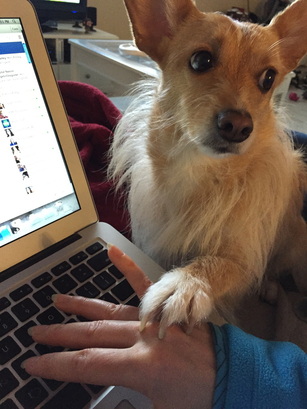
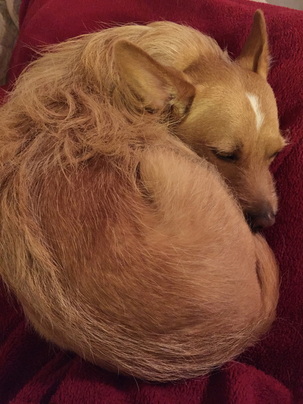
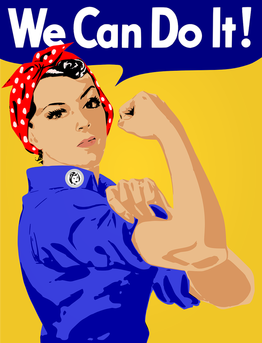
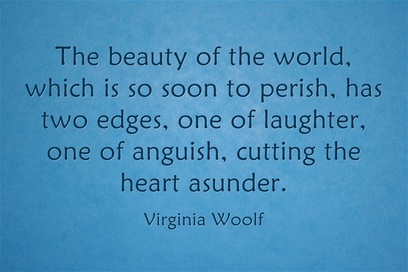
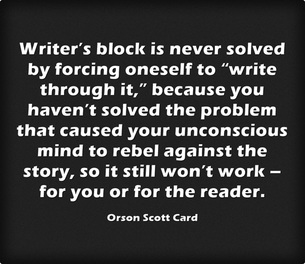
 RSS Feed
RSS Feed